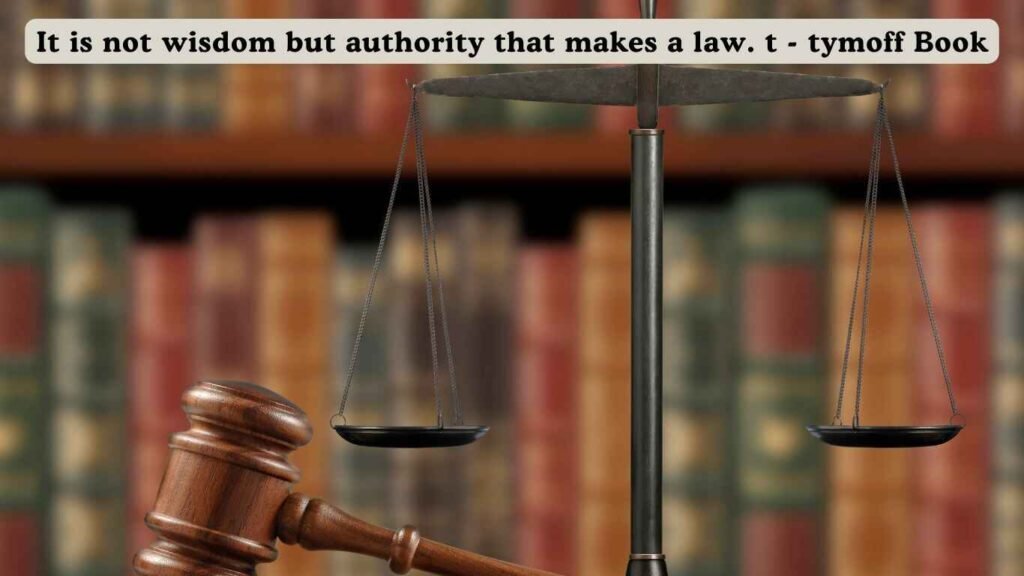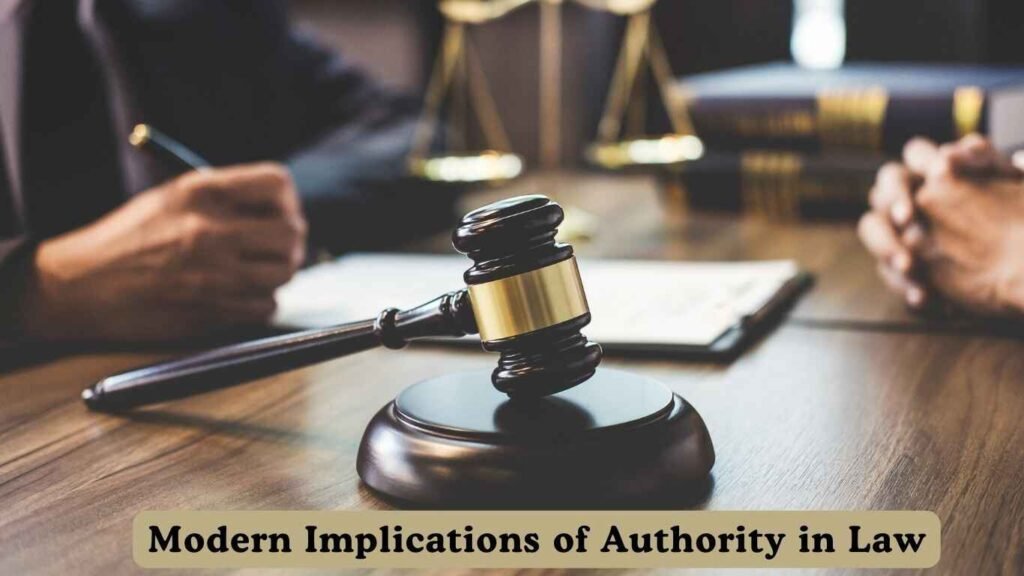Thomas Hobbes’s saying, “The beginning of justice must be attributed to authority and not to wisdom” perfectly captures the essence of legal rules and regulations. Since Antiphon, then, this statement provides an early and pronounced reminder of the separation between wisdom as an abstract concept and the actualities of power in the making and application of laws. To appreciate this distinction, one has to look at how law developed, why it was created, in what capacity authority is beneficial and in what it is not. And finally reconcile what may be right in terms of justice and what is lawful in terms of power. In this article we will explore whether it is not wisdom but authority that makes a law. t – tymoff.
It is not wisdom but authority that makes a law. t – tymoff Meaning
Law as a Social Construct
Laws are the most central social phenomena because they are man-made rules that outline acceptable behavior in a particular society. They arise from the societal aspiration to set norms, gain justice as well as ensure orderliness in executing several activities. According to the theory of a social contract, people pre-agree to agree to wit, give up certain rights and freedoms. And in return receive protection from the state. It can done either through express or implied agreement.
Authority in Lawmaking
To give authority in law means to have the autonomous efficiency to make, administer and interpret laws. This power is exercise through various channels, for example through governments and monarchs and other leaders who have the mandate to govern and regulate societies and dispense justice. It is dangerous to allow the concept of sovereignty to vanish completely from the lawmaking process. As without authority there cannot be enforcement mechanisms to demand compliance.
It is not wisdom but authority that makes a law. t – tymoff Book

The Backbone of Legal Systems
Power is at the core of all legal frameworks, determining their formation and development throughout history. It is the force that guarantees compliance with the law, making available methods for applying sanctions in case of non-observance. This enforcement capability sets the tone between simply recommending or advising on a given course of action as opposed to legally mandating it.
The Ideal Versus the Real
As much as the wisdom of applying knowledge in the optimum way to get the best results in any endeavour is ideal, it may not always be the motivation for making laws. The laws of an ideal country should embody prudence and made by wise person of foresight. However, as social beings living in certain political, social and economic settings, laws are made and passed.
Historical Perspectives on Law and Authority
Hobbes and the Leviathan
According to Thomas Hobbes writing in Leviathan, the state of nature can define as the worst existence where life is solitary, poor nasty brutish, and short The natural condition then is one that man unlike bees, ants or other communal insects cannot be without societies and commonwealths which come into being because man cannot bear living any longer in a state where he lacks binding laws and a political authority.
Legal Positivism and Authority
Another concept referred to as Legal Positivism is another branch in jurisprudence which also supports the role of authority in the process of law making. Some of the most distinguished legal positivists, such as John Austin, defined laws as commands from a sovereign who has the capacity to coerce those receiving the commands.
Modern Implications of Authority in Law

Government’s Role
In the current world systems, this power to pass laws lies in the hands of governments through systems of legislation. The legislative body, which bearer’s the people’s authority, adopts laws that chime with the electorate’s desire and culture. However, specific implementation of these reforms is subject to politico-designation decisions, lobbying, and social processes.
The Judiciary’s Interpretative Role
Laws on their own are a set of rules and they usually require the help of the judiciary in their implementation. Judicial branches have the legal power to deal with controversies, give legal meanings to legislative enactments and determine when laws are constitutional with the constitution. Legal rulings rest on the authority and experience of the judges. Thus delivering the laws with or without the touch of Wiseness.
Balancing Authority and Wisdom in Lawmaking
Participatory Governance
Democratic systems aim at consulting as many people as possible through sharing of power and decision-making mechanisms. Through public participation in law making, democracies hope to arrive at laws that are a reflection of the common people as well as the common welfare of the society.
Checks and Balances
Democracy and checks and balances within the structures of government mainly curb the possibility of an abuse of power. The court’s independence, Legislature monitoring, and the accountability of the executive branch are crucial measures that make certain that laws are authoritative and at the same time just and wise.
Conclusion
The idea that It is not wisdom but authority that makes a law. t – tymoff captures one of the truisms about the law. Alas, the very precondition of wisdom is to contribute to the formulation of just and efficient legislation. The law is given its imperative through authority. This distinction has subjects and societies approaching their legal systems in a complete manner that was not possible before.
FAQ’s
Ans. The phrase, attributed to Thomas Hobbes, highlights the idea that the creation and enforcement of laws are driven by the power of authority rather than by the inherent wisdom or moral correctness of the laws themselves.
Ans. Authority refers to the legitimate power to create, enforce, and interpret laws, typically vested in government bodies or officials.
Ans. Authority is crucial because it provides the mechanisms and power necessary to enforce laws and ensure compliance. Without authority, laws would lack the force needed to compel obedience, making them ineffective as mere guidelines rather than binding rules.
Ans. Laws based solely on authority may not always be just. While authority ensures laws are followed, it does not guarantee that the laws are fair, ethical, or wise. Historical examples, such as segregation laws, demonstrate that authoritative laws can perpetuate injustices even if they are enforced effectively.
Ans. Democratic systems strive to balance authority and wisdom by involving citizens in the legislative process through mechanisms like public consultations, referendums, and elections.

